Identity of Boka Kotorska Croatians - Scientific Conference by Ivo Pilar Social Research Institute
May 12, 2021 - Earlier in May, Boka Kotorska, in the town of Tivat in Montenegro, was the host of the scientific conference "Identity of Boka Kotorska Croatians" which will introduce changes in Croatian education.
Croatia has a big diaspora, no secrets there, but its worldwide spread makes you miss the region.
In Boka Kotorska, in Montenegro, Croatia's first neighbor on the southern border after Dubrovnik, not only is there a huge population of Croatians, but they also have a significant cultural impact on the area. So significant it even calls for social science to step in.
As Ivo Pilar Social Research Institute reported on its website, May 6 to 9 saw the conference “Identity of Boka Kotorska Croatians“. The three-day conference gathered crucial scientific institutes in Croatia to the town of Tivat in the Bay of Croatian Saints. Headed with Ivo Pilar Social Research Institute, Croatian Catholic University, Croatian Studies Faculty, Institute of Croatian Language and Linguistics as well as Institute for Historical Sciences in Zadar attended the conference while Croatian ministries of European, and Foreign Affairs, Science and Education, Culture, and Media, as well as Croatian Central State Office for Croatians Outside of the Republic of Croatia, founded the event.
„The scientific conference went well as well as signing conclusions with recommendations that that knowledge on Bokelj Croatians we learned on this conference enter the Croatian national curriculum in important subjects. These conclusions are the crown of our efforts to launch this conference in public, not just in an academical way, but to massively popularize to ensure long-term benefits for Bokelj Croatians as for every educated citizen of Croatia and Montenegro“, said Dr. Željko Holjevac, head of the Ivo Pilar Social Research Institute.
Conference conclusions suggest additions to the curriculum documents on key definitions of Croatian National Identity to make space for Croatians outside Croatia, including Boka Kotorska Croatians. Identity features and creativity of Bokelj Croatians in Croatian education, and the book „Boka Kotorska - the Bay of the Saints and Croatian Culture“, by Vanda Babić to be the mandatory literature for tourist guides in Montenegro.
Final meetings at the conference, as well as sailing with a „Katica“ ship through Boka Kotorska Bay, Saw the participation of Boris Bastijančić, the advisor and representative of the Montenegro president and representer of Croatian parliament and MP, Zdravka Bušić, and others.
„I'm glad to be at this scientific conference, and I want to thank everyone's effort for something like this to happen in Boka Kotorska. I would especially like to thank students that took part in this and gave their part as young people who love the truth of Boka, the place of saints. This is a message that we too need to do something to mark this time with love, hope, and faith“, said the Kotorska bishop, mons. Ivan Štironja.
Some Croatians live outside of Croatia, but maybe you would want to live in Croatia. Learn more about living in Croatia on our TC page.
For more about the Croatian Diaspora, follow TCN's dedicated page.
Croatian President Zoran Milanović: "Serbia's Attempt to Equate Draža Mihailović With Tito Pathetic"
ZAGREB, 12 May, 2021 - Croatian President Zoran Milanović said on Tuesday that attempts to equate Serbian Chetnik leader Draža Mihailović with the anti-Fascist leader Josip Broz Tito were pathetic.
During World War II Draza Mihailovic led the Chetnik movement whose members were Nazi collaborators and were held responsible for mass-scale war atrocities against non-Serbs in Serbia, Bosnia and Herzegovina, Croatia, Montenegro and some other parts of the then Yugoslavia.
On Victory Day observed on 9 May, during a ceremony held in the National Theatre in Belgrade, two big pictures of Mihailović and Tito were displayed one by another on a video-wall, according to local media outlets. In attendance at that ceremony were Serbia's top officials including President Aleksandar Vučić.
This prompted the Croatian president to say today that Mihailović and Josip Broz Tito, who led the Partisan forces in that war, could not be equated.
"Mihailović was a mere fool. He was not the same as Ante Pavelić (the Fascist leader in Croatia during the Second World War), he was an opportunist and eventually war criminal," Milanović told the press in Zagreb.
As for Mihailović being posthumously decorated by U.S. President Harry Truman, Milanović said that the decoration had been awarded for the operation of rescuing 300 downed Allied airmen. "This is as if you were robbing a bank and then buying to someone a meat pie, pretending to have a big heart," said Milanović.
He went on to say that Chetniks were known for, atrocities, opportunism and cowardice and that they had faced the strongest resistance from Serbs, Montenegrins and Dalmatian Croatians.
He also accused Serbia's authorities of indoctrinating children and young people.
"Unfortunately, everything is delusion there in our neighbours," said Milanović, elaborating that a majority of the Croatians stayed at home during World War Two. "Being Home Guardsman (Domobran) is not at all a crime. It is o.k.," he said adding that a lot of fighters from the Croatian nation joined the Partisan troops, and only a small portion fought for the Axis powers and the (Pavelić-led) Ustasha movement.
For more about history in Croatia, follow TCN's dedicated page.
Best Zagreb Mayor By Historians: Historians Shouldn't Rate, But Većeslav Holjevac Takes Lead
May 11, 2021 - Ahead of the local elections, following the death of Milan Bandić and troubling issues Zagreb is facing at the moment, TCN reporter Ivor Kruljac wondered who is the best Zagreb mayor by historians.
With the local elections happening in Croatia this Sunday, just as every year, 2021 is no exception, with all eyes directed on Zagreb. This is no surprise, given that, for better or worse, Zagreb is the capital city, the center of politics, culture, science, education, and the spot where Croatians from other smaller towns, villages, etc. come in search of a job and new opportunities. You may not necessarily need to leave the country to leave your dreams, and despite other regions of Croatia slowly but surely developing, Zagreb is still considered by many as the necessary place to go to achieve something.
And this year, the eyes are even watching in even bigger suspense; Milan Bandić, who was the first man of the city for 20 years, passed away in February. The ever-controversial political figure (now replaced by his deputy Jelena Pavičić Vukićević, who also runs in the elections) suspected of corruption, being arrested during his mandate and on several trials, left lots of unresolved issues which the new mayor will have to address in the city's administration. Additionally, the current corona crisis caused some new challenges, and last year's earthquakes and city reconstructions are still a hot political topic among citizens.
Zagreb: History of overcoming the crisis
Challenging circumstances in 2021, no doubt, but certainly nothing Zagreb isn't used to. While settlements on the city's territory date earlier, the first mentions of Zagreb are linked with establishing of Capitol Diocese in 1094. Since then, diseases, earthquakes, floods various wars (WW1 and WW11 included, as well as the 90s war Croatians commonly refer to as the Homeland War), disrupt the peaceful life of Zagreb citizens. The city still stands. But of course, these different troubling contexts were handled not just by citizen's persistence but also by the city's authorities and leaders.
Throughout the turbulent history, Zagreb had, concluding with current deputy Jelena Pavičić Vukičević, a total of 53 mayors. The first one was as, Povijest.hr writes, Janko Kamauf, whose term lasted six years, from May 15, 1851, to 1857. He was a former city judge of Gradec, a title whose authorities basically made him the mayor of Gradec. Following the unification of rival Gradec and Kaptol into one city in 1850, he was elected to be the first leader of a city whose population at the time counted 16,036 people.
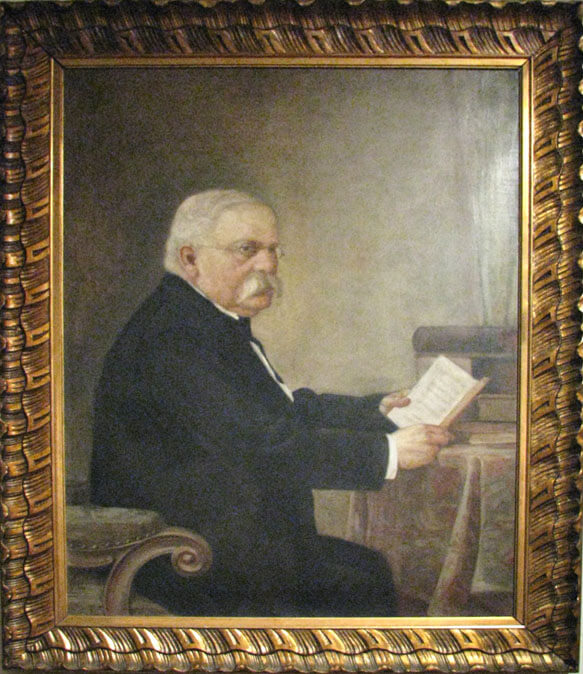
Janko Kamauf painted by Bela Čikoš Sesija, showcased in Zagreb City Museum © Unkown author, Wikipedia
He was the first, but was he the best?
I asked several historians if could they rate and pronounce in their opinion, with regards to the specific contexts, who was the best Zagreb mayor, from Kamauf to Vukičević Pavičić.
Two votes for Većeslav Holjevac!
„I'm not into grading, that's not a historian's task. Our task is to explain and put on the table facts and context of events“, said Ivo Goldstein when I asked him about the best mayor of Zagreb.
Ivo Goldstein may be best known to the Croatian public as a harsh critic of the far-right and the fascist regime of the Independent State of Croatia. As a Historian, he took an interest in various topics related to Croatian history.
At the start of his career, his focus was on Byzantine Empire and Croatian Middle Age History as well as the history of Jews in Croatia. In mid 90's he moved to the various aspects of Croatian history in the 20th century.
He was a professor of various history courses „General History of the Middle Age“ (1984-2003), history of methodology (1991-1996), and many more and today a full-time professor at the Department of History on The Faculty of Humanities and Social Sciences, the University of Zagreb (where he mastered and later completed his Ph.D. thesis at the Faculty of Humanities and Social Sciences, University of Belgrade).
Goldstein's scientific papers received positive acclaim in various countries worldwide, he hosted various projects scientific projects and associations and is very active in Croatian public space when it comes to historical issues that shape the ideas and decisions of current policies in Croatia.
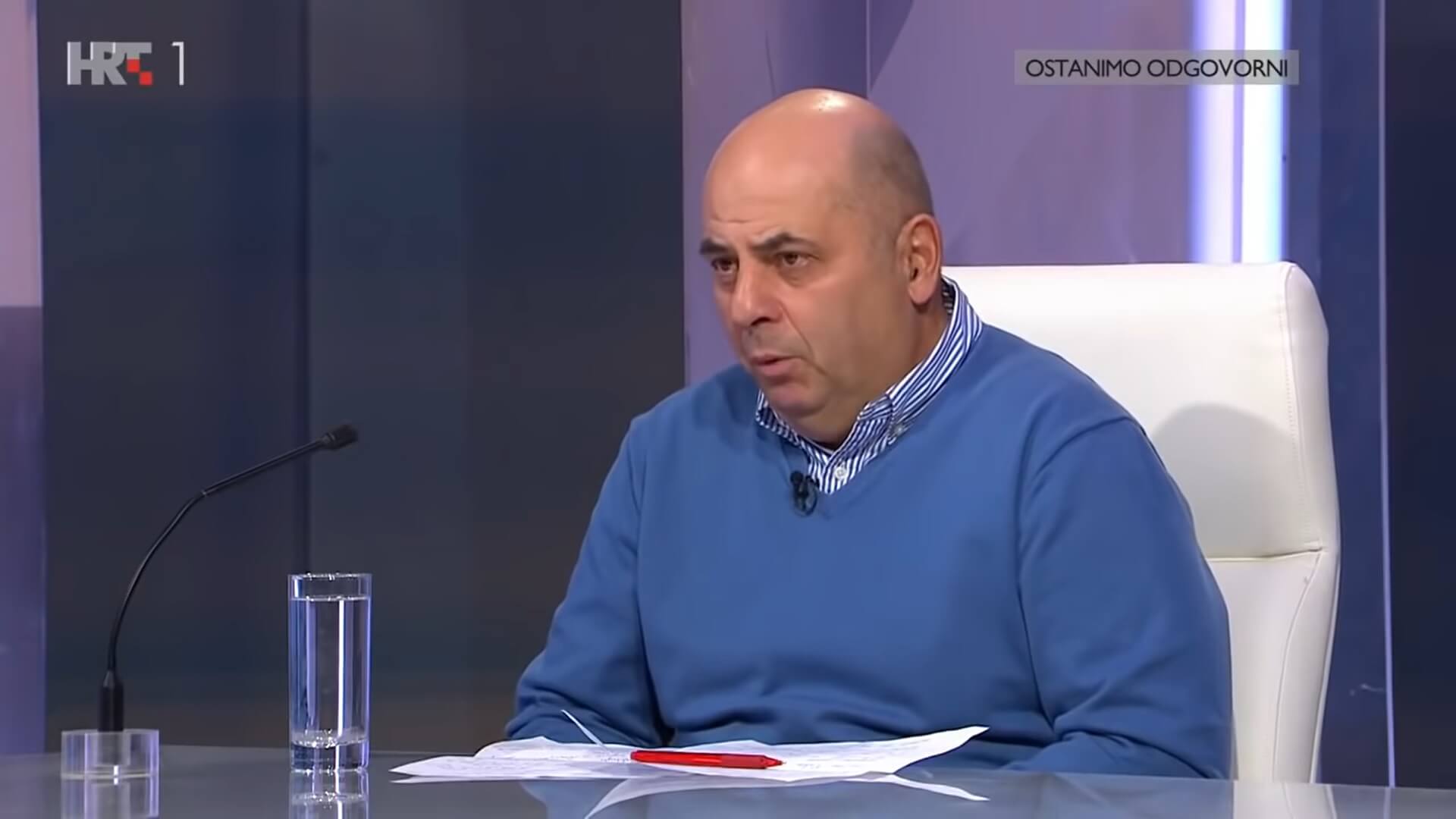 Ivo Goldstein / screenshot HRT Nedjeljom u 2
Ivo Goldstein / screenshot HRT Nedjeljom u 2
Upon explaining the role of historians, professor Goldstein nevertheless didn't mind giving his personal opinion.
„For me, there is no doubt that the best mayor of Zagreb is Većeslav Holjevac“, said Goldstein.
Većeslav Holjevac was the Mayor of Zagreb from 1952-1963 and his eleven-year mandate saw Zagreb develop and spread as the city.
„At that time, Zagreb was the capital city of Socialist Republic of Croatia, which was part of Yugoslavia. Holjevac saw a boost by liberal politics, it was the time of growth and optimism and Holjevac knew how to use it. He was a man of action and used Yugoslavia's opening to the world to Zagreb's benefit“, explained Goldstein.
He added that Holjevac didn't want to be perceived as some sort of transmission of higher state authorities. He didn't hide behind forums and was an independent, free-minded politician, which made him known and beloved among citizens.
„But it made him unloved among the higher power of authority which ended his mandate, although we historically don't know the real reason why Holjevac stopped being mayor“, Goldstein pointed out the mystery which is yet to be cleared up by historians.
The key term of Holjevac's mandate is the General Urban Plan which saw the development of the Most Slobode (Bridge of Freedom), expansion of Zagreb city to south across Sava river, and what today is Novi Zagreb (New Zagreb), as well as building up Zagreb Airport.
„Holjevac knew how to surround himself with good associates who were both dreamers and experts. Holjevac also engaged himself in the projects and his associates felt safe and that he got their back“, explained Goldstein.
The best example of that boldness and visionary approach can be seen in the Zagreb fair which was at that time located at the place of today's Student Centre in Savska.
„The fair needed expansion but was surrounded by railroad tracks everywhere, and the question was how to expand it. There were several options, but Holjevac decided to take it across the Sava river, and it happened. It was quickly constructed, and the first fair on newly build location was the Autumn fair in 1956. and it was the biggest event of its kind in the world back then“, said Goldstein, gladly adding he even had a chance to meet Holjevac as a 12-year-old since the mayor knew his father, an established Croatian intellectual, and politician, Slavko Goldstein.
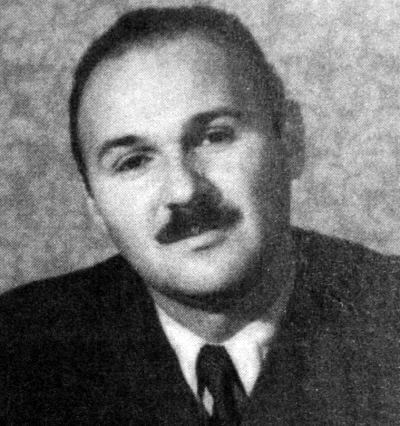
Većeslav Holjevac © Udruga Kameleon / Wikipedia
Hrvoje Klasić was professionally most occupied by Većeslav Holjevac, so he also shares Goldstein's opinion about Većeslav Holjevac.
„In a sentence: Zagreb has never been more developed as it was after Holjevac“, summarized Klasić.
Hrvoje Klasić graduated in 1997 from the Department of History, Faculty of Humanities and Social Sciences at the University of Zagreb. At the same University, he defended his dissertation entitled “1968 in Yugoslavia. Socio-economic changes in an international context”. Since 2003 he has been employed as a professor at the same Faculty and University.
Today, he holds a number of courses related to the world and national history of the 20th century.
Hrvoje Klasić also won the Annual Award of the Association of University Teachers and other Scholars in Zagreb in 2006. That same year he won the Annual Award of Sisak City for the Book „Croatian Spring in Sisak”. He is the author of 3 more books and the author of two documentary series „Croatian Spring“, and “The Independent State of Croatia” produced by Croatian Television. In 2017 The Serb National Council in Croatia gave him an award for the improvement of Croatian-Serbian relations. In 2019 he won the Award for the promotion of peacebuilding, nonviolence, and human rights.
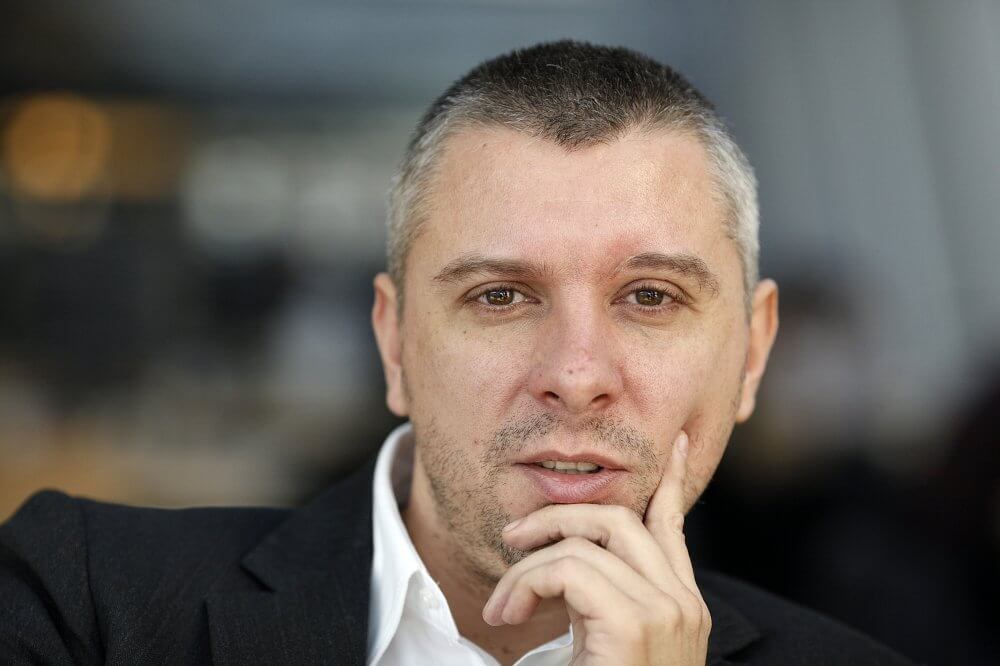
Hrvoje klasić © Hrvoje Klasić
„Most people don't know that Holjevac technically wasn't a mayor, rather he was a president of the City's National Council“, explained Klasić the precision of the functions in the previous Yugoslavian state. He added that while his term lasted from 1952-1963, that is only partially true because he was first appointed to lead Zagreb in 1945.
„In 1945, he was named the city commander who was a military function but he was also in charge of food, traffic, working with several refugees after World War 2 until he gave the control over to civilian bodies“, describes Klasić.
Holjevac then moved on to be the minister of work and traffic in the Social Federal Republic of Croatia. However, at that time, Yugoslavia was going under a change in its political institutions by the self-governing policy which went under parole „factories to workers, cities to citizens“, and as a result, Holjevac 's ministry was shut down. His return to the top position in Zagreb happened without him even knowing.
„As part of self-governing, the Communist Party in Zagreb searched for someone who isn't just going to execute orders from above but instead is an individual that has quality, creativity and will make its own decisions. Holjevac was elected during a meeting he wasn't even present on, and some members of the party were worried is it smart to give Zagreb to a person who is from Karlovac“, said Klasić.
As Goldstein already mentioned, his term lasted over a decade, and Klasić adds that was a very unusual duration at the time.
While Goldstein already mentioned the traffic connections of Zagreb, Klasić said it is very hard to count everything Holjevac built, but he put focus on the industry. Industrial plants of organic-chemical industry, Zagreb heating plant, industrial plants of Pliva pharmaceuticals, Chromos paint company, Kemika, Zvijezda company, Katran, Badel company for alcohol spirits, an ice rink on Šalata, winter pool and gymnastics gyms on Mladost, Yugoton record company, Jadran Film, TV tower on Sljeme, Zagreb drama theatre, an emergency room in Draškovićeva, various elementary and high-schools, and began construction of Vatroslav Lisinski concert hall and more.
„Before Holjevac, there were 40,000 workers in Zagreb. After Holjevac, there was 110,000“, said Klasnić to illustrate the results which made the city the strongest industrial center in Yugoslavia. Apart from industry, Holjevac put a lot of focus on culture and education, as evident by building Workers University Moša Pijade for adult education (today's Public Open University Zagreb) and culture.
Holjevac's „Jump over Sava“ was done on the one hand to prevent interventions in old Zagreb, and on the other, the organizational construction of Novi (New) Zagreb saw the workers live close to the newly built factories.
As Goldstein already referred to Zagreb Fair as perhaps the most significant project of Holjevac's mandate, Klasić added that the unique geopolitical position of Yugoslavia as the bridge between east and west, thanks to the non-aligned movement, made the fair a key place worldwide.
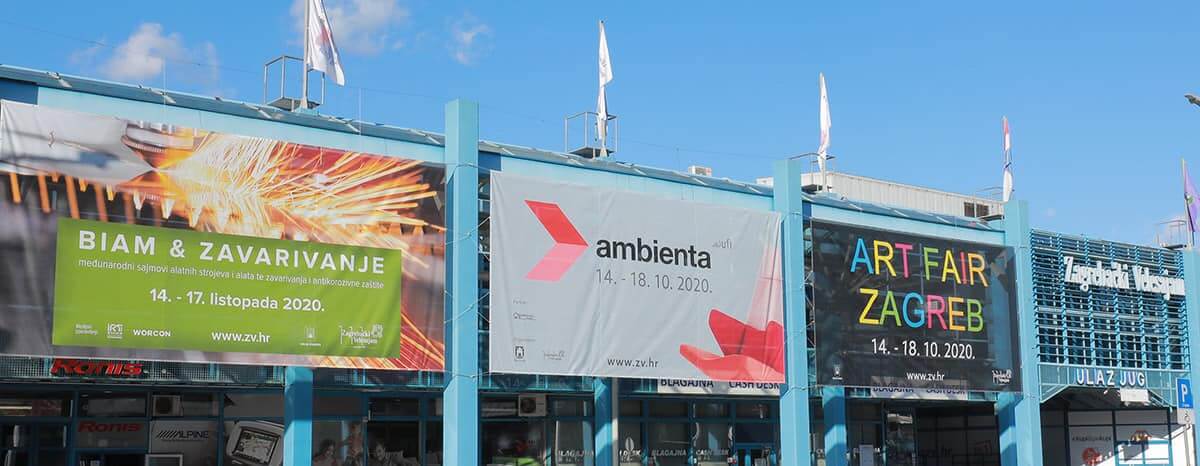
Southern entrance of Zagreb Fair in 2020 © Zagrebački Velesajam
„The fair was not just important for holding exhibitions, but for making deals and signing contracts as well. Given Belgrade was the capital of Yugoslavia, there were pressures to have such a fair there, and there were even boycotts from Belgrade to Zagreba Fair events. However, Holejvac being both persistent and enjoying support by the Yugoslavian president Marshall Josip Broz Tito, managed to keep this significant place in Zagreb“, explained Klasić.
When asked about resentment of other politicians, and the unclear mystery of concluding his mandate, Klasić said he had a chance to look at archives about Holjevac while working on an exhibition about him, and he feels that the situation is much simpler.
„Holjevac basically left due to the same politics that got him to be the mayor in the first place. The Self-Governing model started descending to the lower levels of the system and started searching for creative people. In 1963, a new constitution was brought that further developed the political system to give City Assembly more power accenting the community governing Zagreb. Holjevac's president of City's National Council title has shut down, and the president of Assembly became the first man of Zagreb.
Rotation of politicians as well as limited mandate time was arranged too“, explained Klasić.
He added, however, that it is problematic that an experienced, capable, brave, and brilliant man like Holjevac wasn't put to better use after he stopped being mayor and played bigger roles in Yugoslavian political life.
There isn't the best, only good and bad mayors
Unfortunately, other historians, I contacted (and of course, I couldn't contact every single one, who knows who else might be interested to participate), didn't respond to my inquiry. While Ivo Goldstein explained rating mayors isn't historian's job, Stevo Đurašković, professor at the Faculty of Political Sciences in Zagreb, further elaborated the problem of my question.
„I'm not a fan of such an approach to the topic like it's a miss pageant. In Zagreb's history (as in good portions of cities around the world). There were several great mayors, again, each in its own historical context“, explained Đurašković.
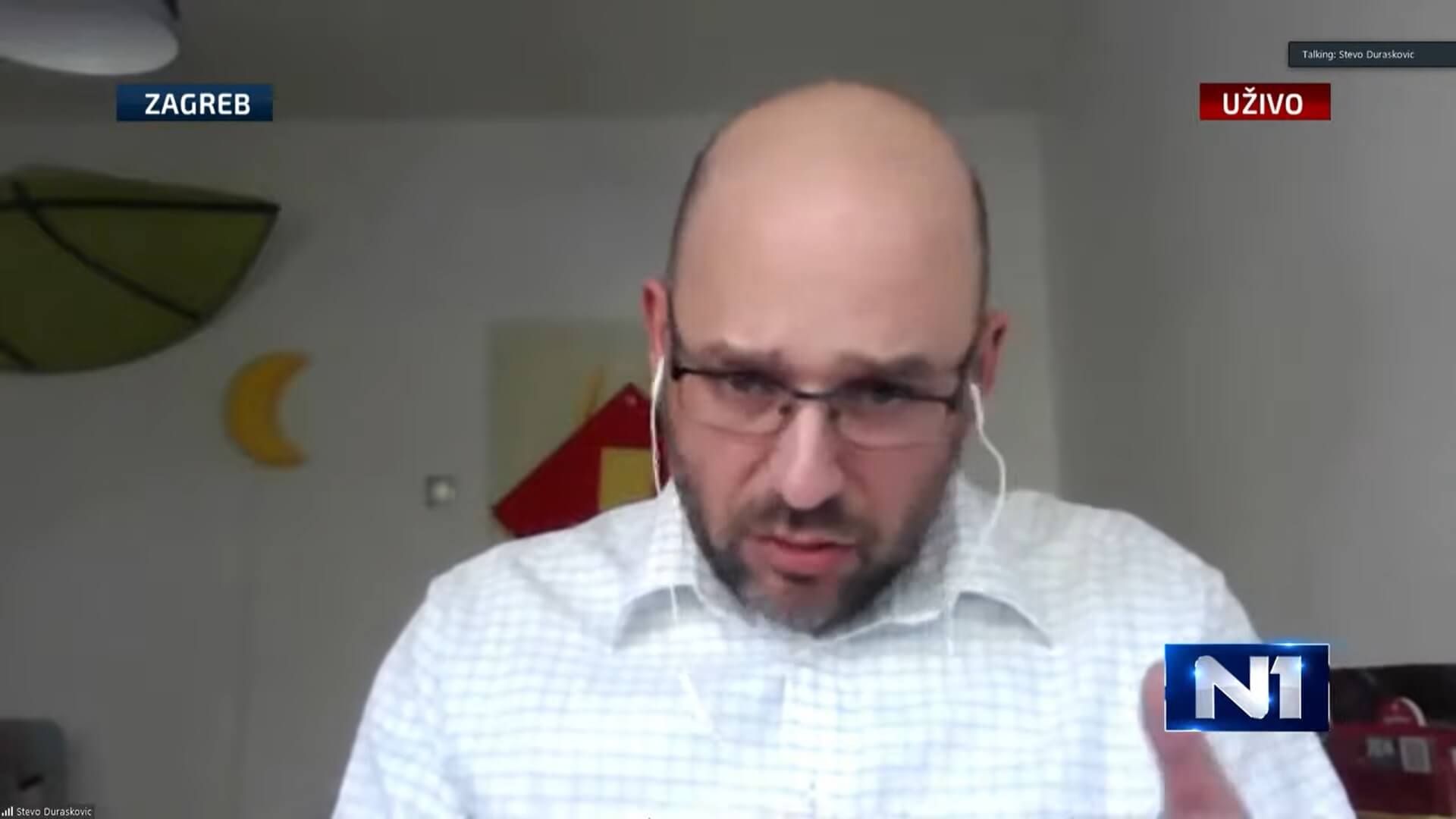
Stevo Đurašković, screenshot / N1
Stevo Đurašković is an Assistant professor at the Faculty of Political Sciences, University of Zagreb, where he teaches courses in politics of history and Croatian history. He received his Ph.D. in Political Science from the Faculty of Social Sciences at the University of Ljubljana and his MA in Central European History from the History Department at the Central European University, Budapest. His research interests include the politics of history, intellectual history, and national identity-building processes in East-Central and Southeastern Europe. Recently he published the book The Politics of History in Croatia and Slovakia in the 1990s (2016). Participated in several international projects, including “Identity Reader: Regional Identity Discourses in Central and Southeast Europe, 1775-1945” (CAS, Sofia). He is a member of the editorial board of the Cultures of History Forum (Imre Kertész Kolleg, University of Jena). In 2009/2010. He was a Ph.D. research fellow at the Faculty of Economic and Social Sciences, Comenius University, Bratislava (CEEPUS grant, Visegrad Fund grant).
In other words, an expert in his respective field with a valid and knowledgeable opinion.
„Milan Amruš and Većeslav Holjevac were great mayors. How to determine if Amruš's development of pre-war Zagreb is greater than Holjevac's post-war development of Zagreb?“ concluded Đurašković his decline to comment who would be the best mayor of Zagreb.
Speaking of Amruš, he was Zagreb mayor in two separate mandates, the first one lasting from 1890 to 1892 and the second from 1904 to 1910. Lice Grada reports that some of the accomplishments in Maruš terms include electrification of the city, and building up Munjara Power Plant (in 1906 and 1907). Under Amruš's mandate, the website continues, horse trams were replaced by electric trams in 1909 and new tram lines and the expansion of the previous one from Ilica to Topnička Barracks were constructed. In addition, 1890 saw lower and upper Zagreb connected by a funicular.
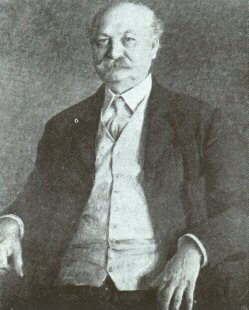
Milan Amruš © Unknown author Wikipedia
Đurašković also added in his decline that Pero Pirker is often „a forgotten mayor“, and Klasić mentioned him as the Holjevac's successor. Mentions of Pirker are also noted on Nacionalne Manjine (National Minorities) site that declared Pirker as a noted Zagreb mayor.
"There is no doubt that Pirker is one of the most capable, most successful, and in its time an extremely popular mayor. But it is stunning that for political reason, considering he was one of the established champions of Croatian Spring in 1972, his work was completely silenced not only until the 1990s but also later“, wrote Goran Beus Richembergh for Nacionalne Manjine.
It's worth noting that the Croatian Spring was a reawakening of national identity which paved the way for the country's independence and the dissolution of Yugoslavia, on which TCN reported on its 50th anniversary earlier this year.
In Pirker's time, the Great flood that sank Zagreb in 1964 was truly the historical challenge of his mandate.
„It was a natural disaster of great extent, and the entire previous state (Yugoslavia) was involved in sanitation and help was arriving from all over the world. But, the biggest responsibility for the coordination of help, sanitation of the damage, taking care of the casualties, and building new homes was carried out by Zagreb's authorities, lead by Pirker who showed to be a skillful manager and successful in various projects“, described Beus Richembergh.
Amruš had the challenge to electrify Zagreb to keep up with other European capitals, Holjevac had the challenge of restoring and developing the city post WW2, and Pirker had the flood.
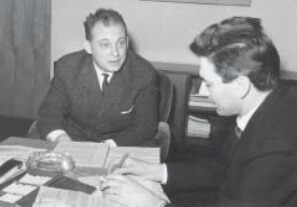
Pero Pirker (on the left) © Croatian Journalist Association / Wikipedia
Both corona and earthquake, as well as the mess suspected to find post-Bandić, are all just another challenge in the history of a town that is used to be challenged and always dancing victory laps.
While Đurašković explained comparisons of what was the most difficult challenge and who was the best mayor make no sense, Goldstein and Klasnić presented their pick. But, as respectable historians they are, they emphasized that it is their opinion and not an empirical fact, even though their arguments are both knowledgable and well explained.
In the end, politics should be about making people's lives better and not about chasing crowns or historical acknowledgments. And as Zagreb really needs a quality leader, the only logical conclusion is: may the best candidate wins, and may purgers recognize the best man or women for Zagreb to once again wave the middle finger to the aftermaths of the recent crisis as it overcomes them.
Learn more about Zagreb on our TC page.
For more about history in Croatia, follow TCN's dedicated page.
Zagreb Museum of Contemporary Art Exhibition on Former Zagreb Mayor Većeslav Holjevac
April 4, 2021- Following the 50th anniversary of the death of Većeslav Holjevac, the Zagreb Museum of Contemporary Art exhibition on the former and historically significant mayor is an excellent opportunity to meet the guy who shaped Zagreb in the previous century.
Apart from the horror of the pandemic and earthquakes, 2020 was the 50th anniversary of the death of Većeslav Holjevac – who is considered to be one of the greatest mayors in Zagreb's history.
As ZG Portal reports, last month an exhibition dedicated to Holjevac started in the gallery of the Museum of Contemporary art, and you can view it until May 20.
The Zagreb of Većeslav Holjevac 1952 to 1963 – Urbanist Vision And Architectural Reach is an exhibition that takes a look at the eleven-year mandate of this significant mayor who transformed Zagreb in the post World War 2 era. Fifty themes and representative examples of urban and architectural achievements which were built, projected, or planned in Holjevac's term. This included three key Strategic urbanistic documents which played a key role in the development of Zagreb and were decided at that time.
The authors of the exhibition are architect Ivan Mlinar which conducted Urbanistic research on Zagreb in the time of Holjevac, and historian Hrvoje Klasić who was in charge of biographical research.
The exhibits were donated by the Museum of Contemporary Arts, Zagreb City Museum, Architecture Museum of Croatian Academy of Sciences and Arts, Faculty of Architecture on Zagreb University, Jadran Film, and Zagreb film studio.
The 35th Zagreb mayor and the total number of mayors in Zagreb throughout its history includes 52 names. Today, Većeslav Holjevac has his own avenue at the entrance to Most Slobode (Liberty bridge), which allows citizens to cross the Sava river and enter Novi Zagreb (New Zagreb), and the statue of Holjevac overlooks the area of Zagreb he built in what is commonly known as „Jump Over Sava“.
Apart from being mayor, Holjevac took various different roles in the former Republic of Yugoslavia. Known as a bold person with vision, competence, and bravery, he made Zagreb one of the most developed cities in Yugoslavia, and despite having various rivals, he enjoyed the support of Yugoslavian president Marshall Josip Broz Tito, which allowed him to make his projects a reality.
Learn more about Zagreb on our TC page.
For more about history in Croatia, follow TCN's dedicated page.
Croatia Seeks Two Suspects Involved in 1991 Killings of Civilians
ZAGREB, 28 April, 2021 - An international arrest warrant has been issued for a 78-year old Croatian citizen Dragan Bešir and 79-year old Serbian national Slobodan Đorđević for murders committed in 1991 and shelling a refugee camp in Grabovac where a three-month old baby was killed.
The charges have been forwarded to the County State Attorney in Rijeka after Lika-Senj and Karlovac county police authorities in cooperation with prosecutorial authorities completed the criminal investigation, the police has reported without revealing the identity of the two suspects.
The suspects are out of reach of Croatian judicial authorities. They are charged with failing to prevent the murder of civilians between 8 October and 10 November 1991 and in that way violated international laws during war conflicts.
Both Bešir and Đorđević were commanders of the then Yugoslav People's Army (JNA), and they did not do anything to prevent the murder of 35 civilians.
In addition, Đorđević is charged with not preventing a mortar attack on a refugee camp at Grabovac which resulted in the killing of three civilians including a three-month old baby, who was the youngest victim during the Homeland War.
President Zoran Milanović: "I'm Considering Not Having Army Attend Operation Flash Commemoration"
ZAGREB, 27 April, 2021 - President Zoran Milanović said on Tuesday that he was considering not having the army participate in the coming commemoration of the 1995 military and police operation "Flash" in Okučani, to protect it from politicking, and that he would discuss the matter with Defence Minister Mario Banožić.
"A situation where soldiers have to stand for hours while politicians and government officials successively lay wreaths to comply with epidemiological measures puts in an awkward position the Army Chief of Staff as well as the commander of the land army who, if they do not want to offend anyone, have to be on duty... after arriving with me, they have to wait for (PM Andrej) Plenković, then, I guess, also for (Parliament Speaker Gordan) Jandroković," said Milanović, who is the Supreme Commander of the Armed Forces.
"So I'm thinking about telling them to stay home, to simply protect them from any politicking... I will talk with the minister," said Milanović while visiting the Gašinci military grounds.
Milanović said that he did not see anything contentious about the fact that on Monday, at a reception he gave for retired officers and wartime commanders of the Croatian Defence Force (HVO) of Bosnia and Herzegovina, he also met with retired HVO general Tihomir Blaškić, who was in the HVO delegation.
Blaškić was convicted by the International Criminal Tribunal for the Former Yugoslavia (ICTY) and served a nine-year prison sentence for the cruel and inhumane treatment of Bosniak civilians and POWs from 1992 to 1994.
"Had Blaškić been responsible for something that, let's say Ratko Mladić was responsible for, I would not have received him," he said.
He announced that he would also receive General Milivoj Petković when he is released from prison "because he isn't a war criminal."
The convictions against Blaškić and Petković were political convictions, he added.
The ICTY convicted Petković of crimes committed in 1993 against Bosniaks in the territory that was under the control of the Croat authorities of Herceg-Bosna
Asked if he would attend a ceremony marking the anniversary of the establishment of the 4th Guards Brigade in Split, Milanović said that he would attend the ceremony in Knin.
"I'm going to Knin, not Split, that brigade is in Knin and the army will conduct such events in barracks," the president said.
For more about politics in Croatia, follow TCN's dedicated page.
Parl. Speaker Gordan Jandroković For Sanctioning Ustasha Insignia and Regulating Communist Symbols
ZAGREB, 22 April, 2021 - Parliament Speaker Gordan Jandroković on Thursday condemned the crimes committed by the 1941-1945 Ustasha regime and called for legally sanctioning the use of the Ustasha insignia and also for regulating the treatment of Communist symbols, including the five-pointed Red Star.
"We must make a clear distinction between the insignia of the Ustasha regime and the heritage of the (1991-1995) Homeland War and regulate the treatment of symbols of the Communist regime," said Jandroković after he laid a wreath in Jasenovac on the occasion of the 76th anniversary of the breakout of inmates from the Ustasha-run concentration camp.
Jandroković called for consistency in regulating the treatment of the five-pointed Red Star which was displayed by people who committed horrendous atrocities in Bleiburg in the wake of the Second World War, on the Croatian island of Goli Otok during the Yugoslav Communist rule as well as in the Croatian towns of Vukovar and Škabrnja in 1991.
Jandroković said that he would like to see all those who participate in discussions about such insignia to be objective and to have understanding for the victims on all the sides.
"Croatia's history has been fraught with conflicts. Therefore, in all these years, no appropriate legislative solutions were found," he underscored, adding that Croatia's society is now mature enough to find, through democratic discussions, solutions that will protect each victim and deplore every criminal and totalitarian regime.
For more about politics in Croatia, follow TCN's dedicated page.
PM Andrej Plenković: NDH is One of Most Tragic Periods in Croatian History
ZAGREB, 22 April, 2021 - Prime Minister Andrej Plenković said on Thursday that the WW2 Nazi-style Independent State of Croatia (NDH) was one of the most tragic periods in Croatian history and added that the government was clearly against the use of Ustasha symbols.
The prime minister made this statement on the occasion of the 76th anniversary anniversary of the breakout of inmates of from the Ustasha-run World War II concentration camp Jasenovac.
Plenković laid a wreath, and on this occasion he was accompanied by the three deputy prime ministers Tomo Medved, Davor Božinović and Boris Milošević and several ministers.
He underscored that they came to pay tribute to all victims of the NDH regime and the horrific crimes committed in the Jasenovac concentration camp and other camps against Jews, Serbs, Roma, Croat antifascists and democrats.
"That is certainly one of the most tragic periods in Croatian history and it is important that young new generations of today are aware of these facts, (...) that this is a part of our education system and that all generations never forget the terrible crimes that were committed here and across Europe in similar camps during World War II, and that there is general and unequivocal condemnation of those crimes," the prime minister said.
He added that he would continue to come to Jasenovac with piety and awareness that we must not allow such crimes ever happen again.
As for amending the Criminal Code to ban Ustasha insignia, Plenković said that they were already banned and that it was a question of aligning action with court practice.
"This topic has been with us for a long time. Everyone who knows something about our history, about the Jasenovac camp, who understand what those symbols mean for members of the Jewish people, members of Serbs, Roma, antifascists, understands that these are not symbols to be used," Plenković said.
Regarding the initiative of the president of the Coordination of Jewish Communities in Croatia, Ognjen Kraus, to ban the Ustasha salute "For the homeland ready", he said that they had talked about it and would continue to discuss it. Also, he said that the position of the government was clear and firm when it came to condemning crimes and such symbols.
He denied claims by the Jewish representative that not enough had been done on the issue.
For more about politics in Croatia, follow TCN's dedicated page.
Five Delegations to Pay Tribute at Jasenovac Successively
ZAGREB, 21 April, 2021 - Commenting on a commemoration for the Jasenovac victims and his non-acceptance of President Zoran Milanović's invitation to pay tribute to them together on Thursday, PM Andrej Plenković has said the Public Health Institute has recommended that visiting delegations pay tribute successively.
Addressing a news conference on Wednesday, Plenković clarified his recent statements on the topic.
"I was referring to my position on the president's office contacting the government and parliament to lay wreaths together. I made it clear that there is no reason to put on an act and that the government and the parliament will lay their wreaths on their own. There is no need to fake friendship, cooperation or unity considering what has been said and what has happened," Plenković said.
There will be no joint wreaths because "that is something that we benevolently wanted and attempted to do several times," he said, recalling that President Milanović laid a wreath in Vukovar on Vukovar Remembrance Day on his own.
Plenković added that the Jasenovac Memorial Area had scheduled visits by five different delegations, of the government, parliament, the office of the president, the victim peoples and foreign embassies, who were all given different time slots.
"We have gone there for years, and will go in the years to come. Not to spend time in somebody's company there but to pay tribute to the victims of the Ustasha camp of Jasenovac," said Plenković.
For more about politics in Croatia, follow TCN's dedicated page.
No Joint Ceremony to Pay Tribute to Jasenovac Victims
ZAGREB, 20 April, 2021 - There will be no joint commemoration for victims of the World War II concentration camp Jasenovac on Thursday, representatives of the victims will lay wreaths separately from the state leadership while President Zoran Milanović will do so separately from the prime minister and parliament speaker.
President Milanović's spokesman Nikola Jelić confirmed to Hina that Milanović and his delegation will lay wreaths at the Stone Flower monument at Jasenovac at 11 a.m. on Thursday.
Office of the President did not receive reply from gov't, parliament
"President Zoran Milanović and his delegation will pay tribute to the Jasenovac victims on 22 April, at 11 a.m., as agreed with the organiser, the Public Institution Jasenovac Memorial Area," Jelić said.
He added that the Office of the President had not received a reply from the government or the parliament to its invitation to pay tribute to the Jasenovac victims together.
"As early as last Friday the President of the Republic proposed to the Prime Minister and the Parliament Speaker that they all pay tribute to the Jasenovac victims together, but we have not received any reply," Jelić said.
Prime Minister Andrej Plenković said today that a government delegation would lay a wreath at Jasenovac at 9 a.m., again dismissing the possibility of paying tribute together with Milanović, noting that "there is no reason for us to put on an act."
"As regards any joint laying of wreaths or flowers, I said yesterday.... there will be no putting on an act," he told reporters during a visit to Rijeka.
Plenković: We were not the ones to start with insults
"The President of the Republic or his staff are now launching an initiative for the Parliament Speaker and myself to lay a wreath with him in Jasenovac. We were not the ones to start with the 'animal farm', we were not the ones to start with insults or a number of other things that are most inappropriate, so there is no reason to put on an act, let that be clear to everyone," said Plenković.
He added that the organiser of the commemoration was the Jasenovac Memorial Area, not the government or anyone else, and that this year's commemoration would be held in line with epidemiological restrictions.
The government's delegation will arrive at 9 a.m. and the parliament's delegation at 10 a.m., he said.
"This has nothing to do with representatives of the victim ethnic groups. We met with them last week, we hold meetings regularly, we respect the victims and went to Jasenovac in the past four years as well. We will go this year again, next year, in 2023, 2024. This has to do with the protocol, but putting on an act is out of the question," he said.
Reporters asked Plenković if he should ignore his relationship with Milanović, regardless of how bad it may be, in situations such as commemorations, to which he said: "No, there's no need for that. In this case it is not envisaged and is out of the question."
Representatives of Serbs, Jews, Roma and antifascists to form separate delegation
The Serb National Council (SNV) said earlier in the day that representatives of ethnic groups that were victims of the Ustasha terror would have a separate, four-member delegation in Jasenovac.
SNV president Milorad Pupovac, the leader of the Coordinating Committee of the Jewish Communities of Croatia, Ognjen Kraus, Roma association "Kali Sara" representative Veljko Kajtazi, and the leader of the SABA association of antifascist fighters and antifascists, Franjo Habulin, will lay a joint wreath at the Stone Flower monument at noon on Thursday.
Kraus confirmed to Hina that this decision was made yesterday, after it became evident that there would be no joint delegation comprising top state officials.
"After we realised that there would be separate delegations, we decided on a separate delegation as well. As you can see, a single delegation does not depend on us. We cannot support the use of commemorations for political one-upmanship," said Kraus.
For more about politics in Croatia, follow TCN's dedicated page.


